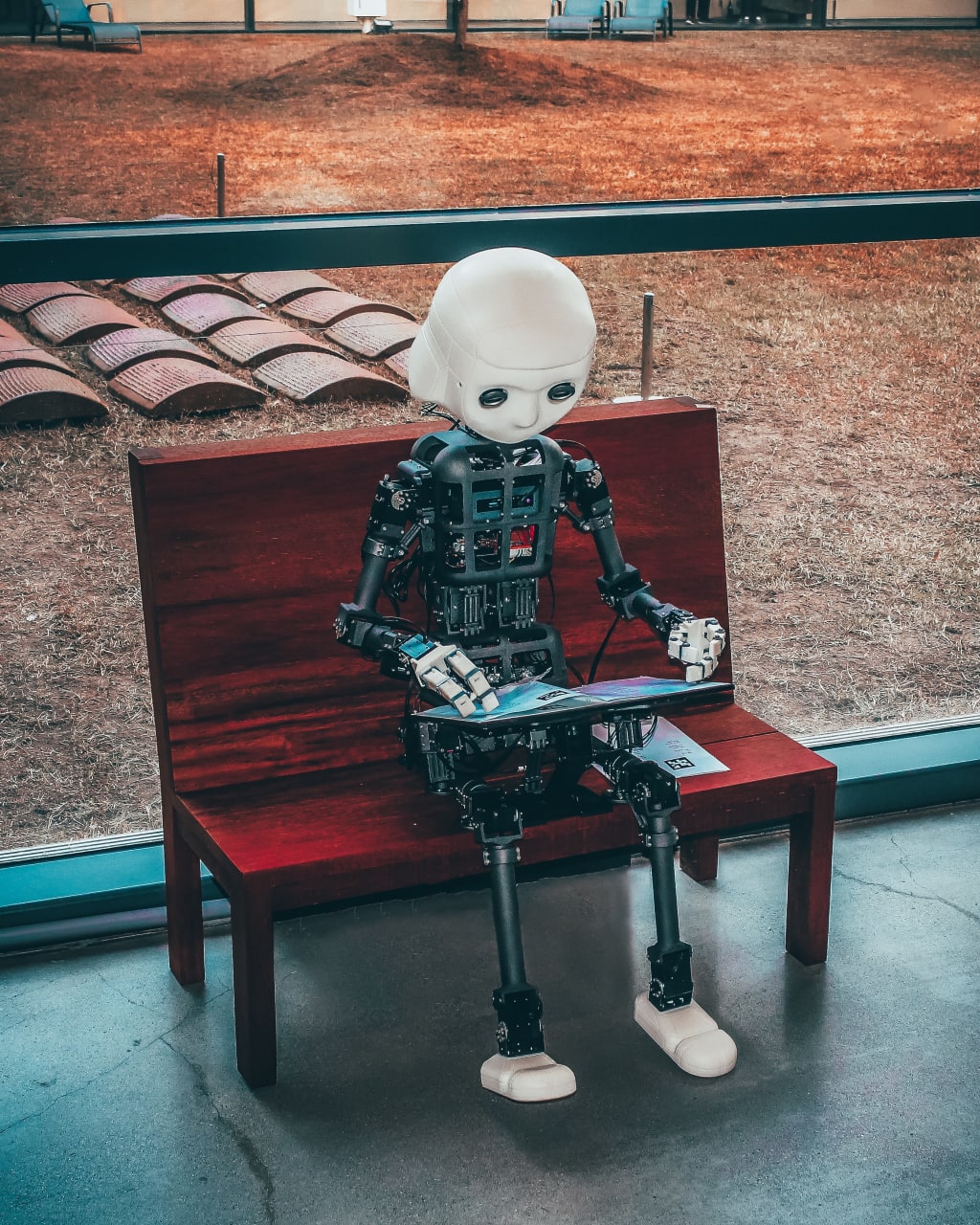
We are in the middle of some exciting times in education technology. The explosion onto the scene of a myriad of AI tools at the end of 2022 was unexpected and a little unsettling for some, whether you were an educator or not. Certainly, the AI tools that burst onto the scene in November are not necessarily what one would call “educational technology,” but it doesn’t take much of a stretch to see how some could use tools such as ChatGPT to circumvent the educational process. It didn’t take long for educators to realize that these tools could be a significant disruptor for education systems from K — Ph.D.
To date, the knee-jerk reaction from educational institutions has been to ban these tools from being used in teaching and learning environments, a perfectly rational approach considering the power of these tools to derail the traditional teaching and learning process, and we can expect this to continue for the foreseeable future. However, is anyone talking about what to do beyond a ban? We know that technological advances march relentlessly forward, so what does the inevitable growth of AI mean for education? Is anyone planning for this inevitability? Where is AI most likely to enter the education system? The questions are endless, but I wonder if anyone is attempting to answer them.
Where will AI show up in education first?
The great thing about where we are in the development is AI is that we can start to conger up some pretty good guesses as to where AI will begin to make inroads in almost any industry, and education is not immune to this speculation. In the spirit of informed speculation, I am willing to predict right here right now that in the world of education, AI will first be adopted in the area of evaluation. Specifically, AI will make inroads in the area of summative assessment, with the potential of taking on formative assessment eventually as well.
I make this prediction simply because effective AI relies on data points, and the more data points it has, the better the AI is. If there is one thing education is good at, it is using data to measure achievement. What is more, teachers (most) are not all that fond of correlating and presenting that data as an assessment. If suddenly there was an AI that could handle the tedious task of analyzing 120 essays on the war of 1812 and come up with a grade, most teachers would jump on the AI bandwagon. Math and science would be even easier to evaluate for an AI. In fact, I suspect it is already possible to develop this kind of AI if someone took it upon themselves to develop it.
As evidence that we are just steps away from this type of AI, my writing at this very moment is being checked by a program called Grammarly (ya ya ya, I know there are still mistakes). If someone wanted to check and see if I had plagiarized anything, they could run my work through a plagiarism checker service. Most recently, Chat GPT has proven that Natural Language Processing has been achieved and that an accurate response to natural language input can be accurately generated. Add a rubric to measure the writing against, and you have a pretty awesome assessment tool in hand. All that is needed is someone to package these more straightforward dumb assessment tools we already have into one AI, and education is changed forever, but this would be just the beginning.
What is the endgame for AI in Education?
Anything that can be compared to a database of expected cognitive skills by age and cross-referenced with learning outcomes by grade could be assessed by an AI. The only thing that could limit what this AI could do would be its programming and the database it works with. A programmer would not have difficulty creating the algorithms to accomplish this. However, the data needed to make this happen may be a sticking point, which I will discuss later. Because such an AI is already within the realm of possibility, I believe the first place AI will show up in the education system is with assessment. This would not be the endgame for AI in education, however. We will know we have come to the endgame when every child has their own PEAI.
One day, each student will be assigned a Personal Educational AI (PEAI) when they enter the system. This AI will assess each child’s K — 12 journey. Everything the student submits for evaluation will be cataloged, weighed, measured, and found to be exceeding, meeting, or approaching grade level. The PEAI will be able to identify areas for improvement, individual strengths, creativity level, original ideas, and biases in thinking… The AI could also look for red flags which indicate learning problems or potential mental health issues and alert educators and parents of problems that should be monitored. By the time the student hits grade 12 graduation, their personal PEAI will have built a perfect portfolio of that individual’s skills and academic abilities. When it comes time to apply for further education, the student will submit their PEAI-generated profile to the admissions office of their chosen institutions, and their acceptance or rejection will be based on this profile.
Assuming that all kids had a PEAI, this would revolutionize education (for better or worse) simply because the human element would be taken out of assessment. This is not to say that teachers assess their students poorly, but there are as many variations in how a student is evaluated as there are teachers. Sure, there are learning standards, benchmarks, criteria, and outcomes… that teachers apply to students’ work when they mark, but again many variables can affect the grade that ends up on that paper. Teachers have to manage their own families, hold down multiple jobs, give their time to students with extracurricular activities, plan for the following day, care for aging parents… Now imagine if a single standardized process for assessment could be used and applied to all student work using AI. It may not seem like a big deal, but it would have enormous implications for education, the scope of which is too big to tackle right here right now.
Assessment is a HUGE part of the off-the-clock time teachers put into their jobs and to relieve them of this burden would be life-changing for the average teacher. The good news is that the instructional end of education is not at risk of being taken over by AI just yet. So far, we humans still value person-to-person interaction in the classroom. Having AI take over the assessment piece of a teacher’s job would free up time for teachers to focus on their instructional practice, improving learning and making for happier, more engaged teachers and students. The PEAI would take over the tedious and time-consuming part of teaching and learning that most teachers dislike anyhow. This is why I believe AI will enter the education system through assessment.
What could get in the way?
I can wrap this section up with one word, “PRIVACY,” but I will add some context for clarity. In the early days of the internet, there wasn’t much thought about student privacy, and for the early adopters, it was a bit of a heyday for innovation in the classroom. Teachers on the bleeding edge of utilizing digital tools for learning eagerly adopted the latest and greatest that the internet had to offer, but it wasn’t long before the internet was proven not to be the safest place for an individual’s personal information. The result was stringent privacy protection rules were implemented to protect students' personal information when doing school-related work online.
For any AI to work, it needs data. In the case of my prediction, the AI being used would need samples of student work, from exemplar to barely acceptable at all grade levels and subject areas. This database would be the foundation of how every new piece of work submitted would be measured. The more samples, the better the AI will be. To create this bank of data, when a student submits their work, it would be weighed, measured, ranked, then placed in the database. The AI would view this work through the lens of expected learning outcomes and assess whether it approached, met or exceeded those learning outcomes and then would cross reference the work with that of other students that went before. The AI assessment could provide a grade based on the learning outcomes being met or the grade could be based on how the work ranked against the samples of work in the AI’s database. The biggest problem would be is ensuring that each piece of student work is scrubbed of personal identifiers so it becomes a nameless, faceless and location-less data point. Suffice it to say, there would undoubtedly be some pushback from educators, students and parents about the ethics behind such a database.
This leads us to the next most significant roadblock to overcome: Educational Ethics. Is such a tool “ethical?” I would be willing to guess that most people would say no, even IF an AI could better assess a student’s work. In order for such a thing to happen, an age-old social contract between student and teacher would have to be broken before such an AI could take over such a personal and trust-laden relationship. Assessment is more than just right and wrong and measuring up. It is about knowing the whole student, and I am not sure there is an algorithm that can break down that level of assessment.
Finally, there is equity of access. How do you apply such a technology equitably across an entire population of K — 12 students? As it stands now, we cannot ensure equitable access to the most basic technology from one school to the next. Some regions of Canada don’t even have reliable internet connections, never mind access to the technology that would make implementing AI assessment tools feasible. Then imagine the headache post-secondary institutions would have trying to decide which students to accept based on whether a human or an AI assessed them. Will we have a two-tier assessment system where those who agree to subject themselves to AI assessment get preferential consideration for post-secondary entrance? At this point, we can only guess how such a situation would play out, but we can be sure that the equitable application of such technology would be at the center of any objection to its use.
When can we expect this to happen?
The short answer is now and not for a long time yet.
I will be long since retired (if not dead) before we see a PEAI for every child, but we WILL see a fragmented array of AI tools being offered up to the education system coming fast and furiously over the coming years. The biggest issue won’t necessarily be the tools' capability but the complete and total lack of input from educators on how they are developed. Anyone who has been teaching over the past 20 to 30 years has undoubtedly had a new piece of technology presented to them as the latest and most incredible educational tool ever created, and all you could think was a teacher did NOT create this. This has been a long-standing bone of contention between teachers and how the implementation of education technology has been executed. No one ever seems to ask teachers what they need or want from classroom technology, it just shows up, and they are expected to use it. Unfortunately, it doesn’t seem that this dysfunctional relationship between teachers and technology will change as the development of AI moves forward.
All we can be certain of is that AI is coming to education; how and when is yet to be determined, but it is coming.
About the Creator
Enjoyed the story? Support the Creator.
Subscribe for free to receive all their stories in your feed.






Comments
There are no comments for this story
Be the first to respond and start the conversation.